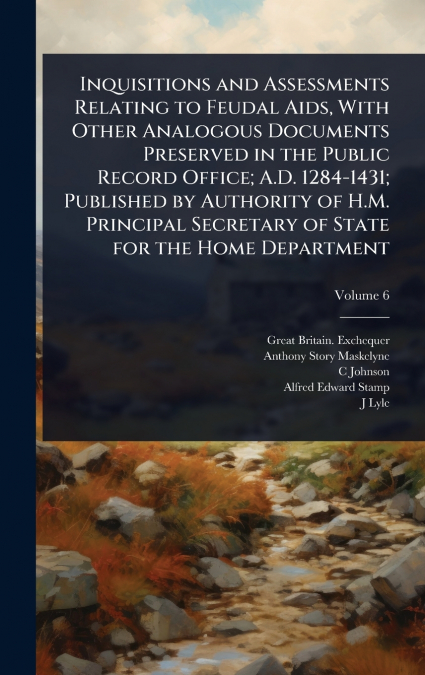
Anthony Story Maskelyne / C Johnson / Great Britain. Exchequer
Inquisitions and Assessments Relating to Feudal Aids, With Other Analogous Documents Preserved in the Public Record Office; A.D. 1284-1431, Volume 6, offers a detailed look into the historical records of feudal assessments and inquisitions in Great Britain. Compiled under the authority of H.M. Principal Secretary of State for the Home Department, this volume presents a wealth of primary source material spanning from the late 13th to the early 15th centuries. These meticulously preserved documents from the Public Record Office provide invaluable insights into the legal, social, and economic structures of medieval England.Edited by Anthony Story Maskelyne, C Johnson, Alfred Edward Stamp, and J Lyle, this collection is an essential resource for historians, legal scholars, and anyone interested in the intricacies of feudalism and the administration of justice during this period. The documents shed light on the processes of inquisition and assessment, offering a glimpse into the lives and obligations of individuals within the feudal system. This volume stands as a testament to the enduring importance of preserving historical records and their capacity to inform our understanding of the past.This work has been selected by scholars as being culturally important, and is part of the knowledge base of civilization as we know it. This work was reproduced from the original artifact, and remains as true to the original work as possible. Therefore, you will see the original copyright references, library stamps (as most of these works have been housed in our most important libraries around the world), and other notations in the work.This work is in the public domain in the United States of America, and possibly other nations. Within the United States, you may freely copy and distribute this work, as no entity (individual or corporate) has a copyright on the body of the work.As a reproduction of a historical artifact, this work may contain missing or blurred pages, poor pictures, errant marks, etc. Scholars believe, and we concur, that this work is important enough to be preserved, reproduced, and made generally available to the public. We appreciate your support of the preservation process, and thank you for being an important part of keeping this knowledge alive and relevant.